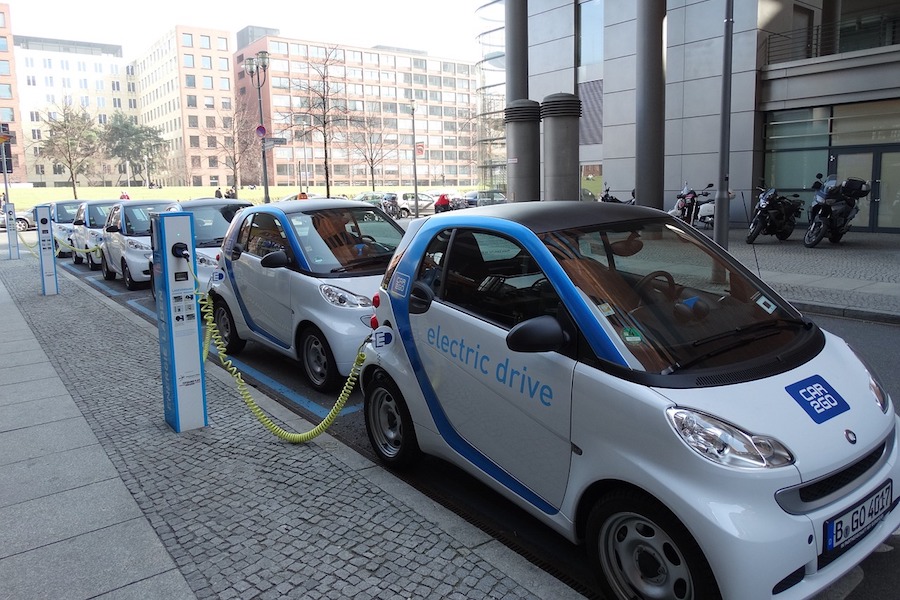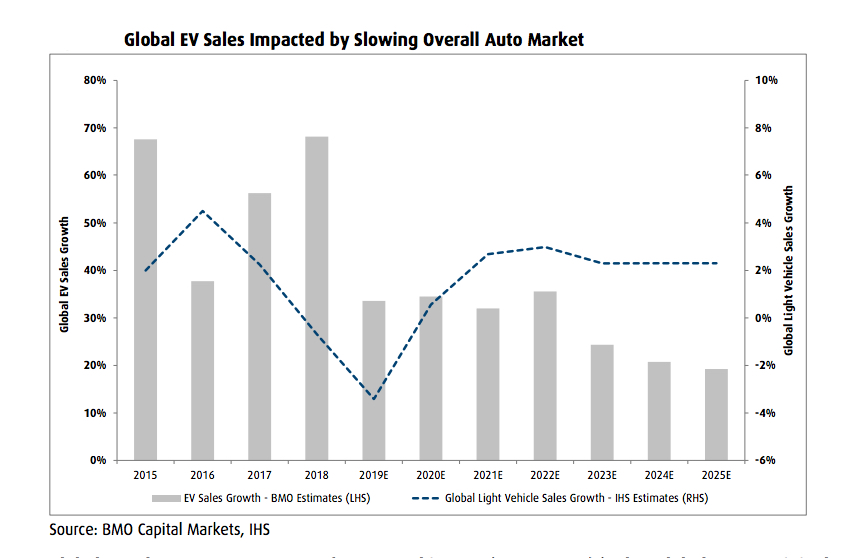Bad news for cobalt, nickel as EV sales forecasts cut — BMO

An expected slowdown in EV adoption by between 15% to 25% through 2021 compared to previous estimates is set to worsen the glut of minerals used to power electric vehicles (EVs), particularly cobalt and lithium, experts at BMO Capital Markets say.
BMO estimates that total global light vehicle sales will be 8 million below previous forecasts for 2019, totalling 90 million. Sales year-to-date is already down 7% compared to end-July 2018. By 2025, car sales will reach 103 million, instead of the 110 million units previously forecasted.
Global light EVs sales will drop by 8 million this year to 90 million and will reach only 103 million in 2025.
“We now see cobalt oversupplied until 2023 (assuming Glencore’s Katanga operation ramps up). For nickel, slower EV penetration will allow more time for the necessary growth in new supply projects, particularly from high-pressure acid leach (HPAL) operations,” analyst Colin Hamilton said in a note to investors Friday.
“That said, NMC cathode chemistry will still take the majority of market share in 2025, with NMC532/NMC622 being the dominant chemistries,” Hamilton notes.
BMO believes global cobalt consumption for the EV sector will hit 86,000 tonnes in 2015, down from the 97,000 tonnes previously anticipated.

“Even with the cut to Glencore’s Mutanda operation, we see a relatively substantial market surplus over 2020-21 (…) The best hope for cobalt may be a turnaround in global smartphone demand (where LCO cathodes still dominate), which has been a drag over the past two years,” BMO says.
BMO sees Chinese battery producers as favouring nickel-free lithium-iron-phosphate (LFP) batteries once more, after a government decision to reduce state subsidies for EVs using nickel-manganese-cobalt (NMC) technologies.
For nickel, electric vehicles represent a much smaller proportion of overall market demand. However, BMO’s forecast 2025 consumption in this area has now dropped by over 50,000 tonnes to 347,000 tonnes in 2025, with EVs consuming 11% of the total supply, down from 13% previously.
The bank doesn’t expect to see significant impact on prices, as Indonesia — the world’s top nickel miner — said this week it would stop nickel ore exports from Jan. 1, 2020, two years earlier than initially indicated.
{{ commodity.name }}
{{ post.title }}
{{ post.date }}




Comments